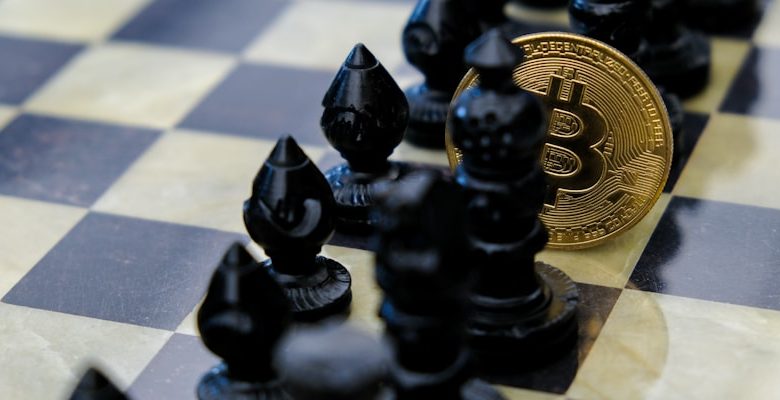How NFTs Are Leveraging Blockchain for Digital Ownership

- Understanding NFTs and their role in digital ownership
- Exploring the intersection of blockchain technology and NFTs
- The rise of NFTs as a game-changer in the digital art world
- How blockchain is revolutionizing the concept of ownership through NFTs
- Unlocking the potential of NFTs for creators and collectors alike
- Navigating the legal and ethical implications of NFT ownership
Understanding NFTs and their role in digital ownership
NFTs, or non-fungible tokens, have gained significant attention in recent years for their role in revolutionizing digital ownership. These digital assets are unique and indivisible, making them ideal for representing ownership of digital art, collectibles, virtual real estate, and more. NFTs are built on blockchain technology, which ensures transparency, security, and immutability of ownership records.
NFTs have opened up new opportunities for creators and collectors alike. Artists can tokenize their work as NFTs, allowing them to retain ownership rights and receive royalties on secondary sales. Collectors, on the other hand, can buy, sell, and trade NFTs with ease, knowing that each token is one-of-a-kind and cannot be replicated or destroyed.
By leveraging blockchain technology, NFTs provide a decentralized platform for digital ownership, eliminating the need for intermediaries and ensuring that transactions are secure and transparent. This has led to a surge in interest in NFTs across various industries, with companies exploring ways to use NFTs to digitize assets, enhance customer engagement, and create new revenue streams.
Overall, NFTs represent a new frontier in digital ownership, offering a unique way to buy, sell, and own digital assets in a secure and transparent manner. As the technology continues to evolve, NFTs are poised to play an increasingly important role in shaping the future of digital ownership and commerce.
Exploring the intersection of blockchain technology and NFTs
The intersection of blockchain technology and NFTs is a fascinating area that is revolutionizing the concept of digital ownership. Blockchain, known for its decentralized and secure nature, provides the perfect infrastructure for NFTs to thrive. NFTs, or non-fungible tokens, are unique digital assets that are indivisible and cannot be exchanged on a like-for-like basis.
By leveraging blockchain technology, NFTs ensure authenticity and provenance, allowing creators to establish ownership and scarcity of their digital creations. This has opened up a whole new world of possibilities for artists, musicians, and content creators to monetize their work in a secure and transparent manner.
The decentralized nature of blockchain ensures that NFT transactions are recorded on a public ledger, providing a tamper-proof record of ownership. This not only prevents fraud but also eliminates the need for intermediaries, reducing transaction costs and increasing efficiency.
Moreover, blockchain technology enables smart contracts to be embedded within NFTs, allowing for automated royalty payments to creators every time their digital assets are sold or traded. This has the potential to revolutionize the way artists are compensated for their work, ensuring they receive fair compensation for their creations.
In conclusion, the intersection of blockchain technology and NFTs is reshaping the digital landscape by providing a secure and transparent way for creators to establish ownership of their digital assets. This innovative fusion is empowering artists and creators to take control of their work and monetize it in a way that was previously not possible.
The rise of NFTs as a game-changer in the digital art world
NFTs have emerged as a groundbreaking innovation in the digital art world, leveraging blockchain technology to revolutionize the concept of ownership. Artists and creators can now tokenize their work as unique digital assets, allowing for greater authenticity and provenance. This has opened up new opportunities for artists to monetize their creations and reach a broader audience.
One of the key advantages of NFTs is their ability to provide verifiable ownership and scarcity in the digital realm. By utilizing blockchain technology, each NFT is assigned a unique token, making it tamper-proof and ensuring its provenance. This has led to a surge in interest from collectors and investors looking to own rare and exclusive digital artworks.
The rise of NFTs has also democratized the art world, allowing artists to bypass traditional gatekeepers and sell their work directly to a global audience. This has created a more inclusive and accessible ecosystem for both creators and collectors, fostering a sense of community and collaboration in the digital art space.
How blockchain is revolutionizing the concept of ownership through NFTs
Blockchain technology has brought a revolutionary change in the concept of ownership through the introduction of Non-Fungible Tokens (NFTs). NFTs are unique digital assets that are stored on a blockchain, making them secure and tamper-proof. This technology allows creators to tokenize their digital works, such as art, music, and collectibles, giving them a verifiable proof of ownership.
By leveraging blockchain, NFTs are able to provide a decentralized platform where ownership rights are transparent and immutable. This means that once a digital asset is tokenized as an NFT, it cannot be duplicated or counterfeited, ensuring the authenticity and scarcity of the item. This has opened up new opportunities for creators to monetize their work and for buyers to invest in unique digital assets.
One of the key benefits of using blockchain for NFTs is the ability to track the ownership history of a digital asset. Each NFT contains metadata that records the entire transaction history of the asset, from the creator to the current owner. This provides a clear and traceable ownership trail, eliminating any disputes over the provenance of the digital item.
Overall, blockchain technology has revolutionized the concept of ownership through NFTs by providing a secure, transparent, and decentralized platform for trading unique digital assets. This has created a new paradigm in the digital economy, where creators and buyers can engage in a trustless environment, knowing that their ownership rights are protected and verified on the blockchain.
Unlocking the potential of NFTs for creators and collectors alike
NFTs have revolutionized the way creators and collectors interact with digital assets. By leveraging blockchain technology, NFTs provide a secure and transparent way for individuals to buy, sell, and trade unique digital items. This has unlocked a world of opportunities for artists, musicians, and other creators to monetize their work in ways that were previously not possible.
For creators, NFTs offer a way to establish ownership of their digital creations and ensure that they are fairly compensated for their efforts. By minting their work as NFTs, creators can create scarcity and exclusivity, driving up the value of their creations and attracting collectors who are willing to pay a premium for unique digital assets. This has the potential to revolutionize the way artists monetize their work and establish a direct connection with their fans and supporters.
For collectors, NFTs offer a way to own and trade digital assets in a way that was not possible before. By purchasing NFTs, collectors can establish ownership of unique digital items and participate in a vibrant marketplace where they can buy, sell, and trade with other collectors. This has created a new ecosystem where digital assets can be bought and sold like physical goods, opening up new opportunities for collectors to diversify their portfolios and invest in the digital economy.
Navigating the legal and ethical implications of NFT ownership
When it comes to owning non-fungible tokens (NFTs), there are several legal and ethical considerations to keep in mind. As with any digital asset, NFT ownership raises questions about intellectual property rights, copyright infringement, and authenticity.
One of the key legal issues surrounding NFT ownership is the question of who actually owns the underlying content. While buying an NFT may give you ownership of the token itself, it may not necessarily grant you the rights to the digital artwork, music, or other content associated with it. This can lead to disputes over intellectual property rights and copyright infringement.
From an ethical standpoint, there are concerns about the environmental impact of NFTs. The process of minting NFTs and trading them on blockchain networks consumes a significant amount of energy, leading to debates about the sustainability of this digital ownership model.
Another ethical consideration is the potential for fraud and scams in the NFT market. Due to the pseudonymous nature of blockchain transactions, it can be challenging to verify the authenticity of an NFT and ensure that it is not a counterfeit or stolen asset.
Overall, navigating the legal and ethical implications of NFT ownership requires a thorough understanding of intellectual property law, copyright regulations, and blockchain technology. By staying informed and conducting due diligence before buying or selling NFTs, individuals can protect themselves and ensure that they are acting responsibly in the digital ownership landscape.



